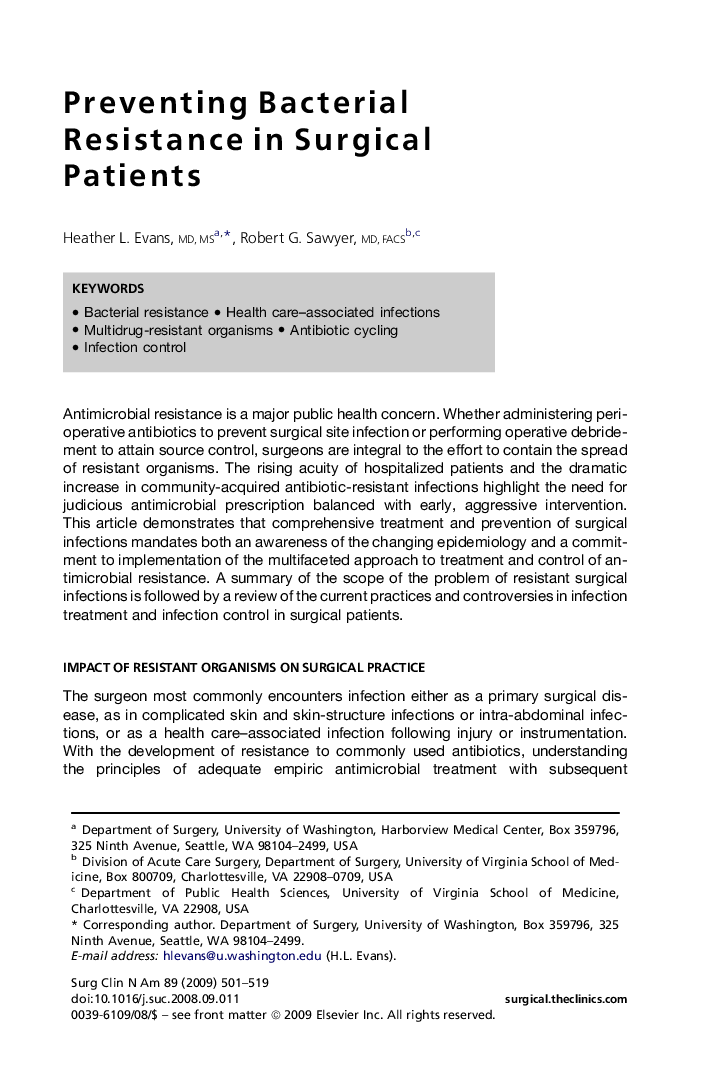| Article ID | Journal | Published Year | Pages | File Type |
|---|---|---|---|---|
| 4311536 | Surgical Clinics of North America | 2009 | 19 Pages |
Abstract
The development of antimicrobial resistant pathogens in surgical patients is a significant problem, and infections caused by these organisms are associated with increased morbidity and mortality. Programs to prevent the spread of resistant organisms emphasize standard infection control practices and appropriate antibiotic prescribing practices. Antibiotic restriction and selective reporting of bacterial susceptibilities have had limited success in decreasing development of resistance, and are difficult to maintain effectively in the absence of widespread clinician acceptance. Potentially more promising are integrated decision support tools, which can support optimal antibiotic selection while preserving the sense of clinician autonomy. The use of antibiotic cycling programs for critically ill patients may be another approach to preserving the efficacy of the currently antimicrobial against the continued pressure of increasing bacterial resistance.
Keywords
Related Topics
Health Sciences
Medicine and Dentistry
Surgery
Authors
Heather L. MD, MS, Robert G. MD, FACS,
